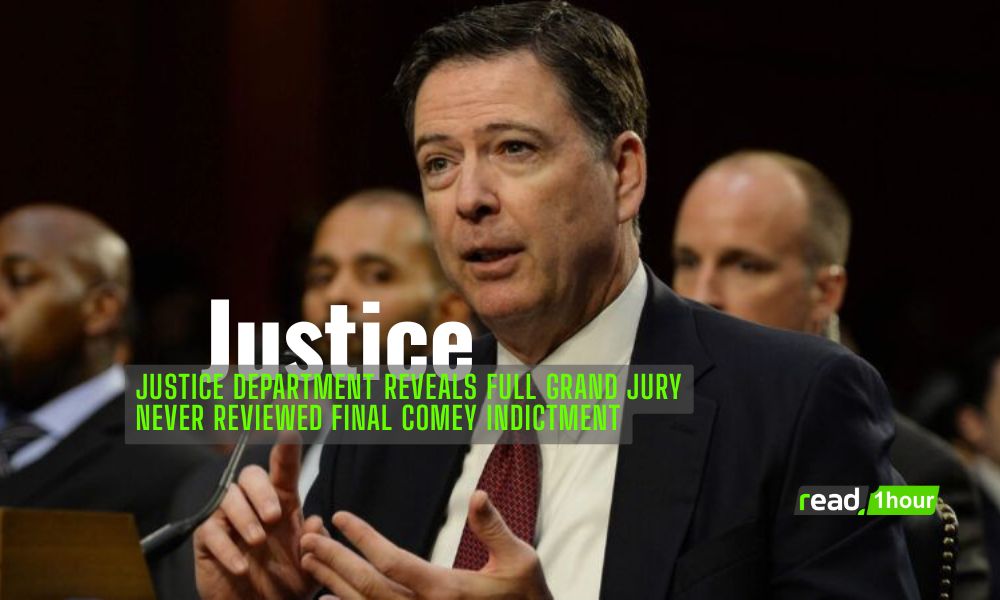Justice Department Reveals Full Grand Jury Never Reviewed Final Comey Indictment
read1hour delivers latest news, stock market updates, gadgets, mobile reviews, and trending stories daily.
In a stunning admission that has intensified political tensions in Washington, the Justice Department confirmed this week that a full grand jury never reviewed the final indictment against former FBI Director James Comey. The revelation has thrown the already fragile case into deeper uncertainty and raised questions about procedural integrity inside the DOJ.

The disclosure emerged during a court filing late Monday, where prosecutors acknowledged that only a partial panel of jurors had been presented with the concluding evidence. Legal experts say this oversight could severely weaken the prosecution’s position and may even render the indictment invalid.
According to DOJ officials, the error stemmed from an “administrative miscommunication,” but critics argue that such a failure points to far more serious structural issues. The Comey case—already deeply polarizing—centers on allegations that the former FBI director mishandled classified memos and exceeded his authority while leading the agency.
For years, Comey has remained a central figure in national political debates, particularly due to his role in the 2016 election investigations. Supporters view him as a defender of democratic institutions, while opponents accuse him of bias and overreach. The grand jury revelation now adds a new layer of controversy to a case already marred by political scrutiny.
Legal analysts say the situation is highly unusual. Grand juries are required to review all major evidence before an indictment can advance. Failure to present the final materials could give Comey’s defense a powerful argument for dismissal.
“An indictment must follow strict legal procedures,” said constitutional attorney Maria Daniels. “If the full grand jury did not evaluate the final evidence, the case is vulnerable to collapse.”
Comey’s legal team responded swiftly, calling the revelation “proof of reckless prosecution” and signaling their intention to file motions aimed at dismissing the indictment entirely. They argue that the DOJ’s mistake demonstrates a lack of fairness and transparency that violates Comey’s constitutional rights.
Meanwhile, lawmakers reacted sharply along party lines. Republican leaders maintain that the indictment should still proceed, insisting that Comey must face accountability for what they describe as “a pattern of misconduct.” Democrats counter that the DOJ’s admission is evidence of political interference and mismanagement.
The Justice Department, attempting to contain the fallout, stated that it is reviewing internal procedures to prevent similar incidents. However, the damage may already be done. Public confidence in the prosecution has weakened, and the case risks becoming a symbol of institutional failure rather than legal clarity.
Political analysts note that the timing could not be worse for the DOJ, which is already under pressure from multiple investigations and congressional oversight efforts. The Comey case, once seen as a decisive step toward resolving long-standing disputes, may now be on the brink of unraveling.
As the court prepares for the next phase, the future of the indictment remains uncertain. What is clear, however, is that the Justice Department’s admission has reshaped the legal landscape and intensified national debate over fairness, accountability, and the rule of law.
